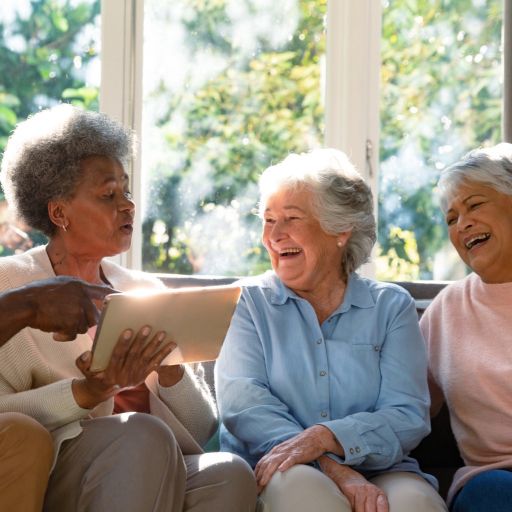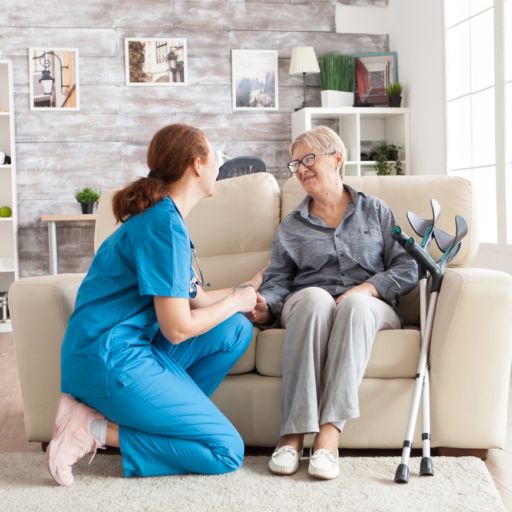Advertisement
As people's living standards improve and their health awareness increases, more and more people are paying attention to preventive health care. Elderly people are no exception, and their demand for health is no longer just about disease treatment, but more about prevention and wellness.
Redefining health in old age is in line with the trend of changing people's health concepts. By strengthening disease prevention, older people can have a better understanding of their own physical condition, master scientific methods of health care and improve their self-care ability.
This will not only help older people maintain good health, but also enhance their self-confidence and sense of well-being.
Limitations of the traditional concept of elderly health
The traditional conception of elderly health is that it is disease-free, and once they fall ill, they resort to medication. However, with the shift in the medical paradigm, people are gradually realizing that geriatric health is not just about disease treatment, but more importantly, health management.
Health management emphasizes intervention in various aspects such as lifestyle, psychological state, and social relationships in order to prevent diseases and improve quality of life.
In the past, our attention to elderly health often focused on prolonging life. However, extending life span is not the only goal; improving quality of life is equally important.
Elderly health should focus on the comprehensive performance of the elderly in terms of their physical and mental state, ability to live, social participation, etc., so that they can enjoy more happiness and dignity in their later years.
Traditionally, the elderly are regarded as a vulnerable group and need the care of their families and society. However, as the health awareness of the elderly increases, they are no longer satisfied with passive acceptance of care, but actively participate in health management and disease prevention.
Elderly people actively participate in fitness activities, learn about health and become the masters of their own health.

Prevention-Oriented Elderly Health Concept
The concept of prevention-oriented geriatric health emphasizes taking measures to improve the overall health of the elderly before the onset of disease. This philosophy not only focuses on physical health, but also includes mental health and social participation.
Prevention not only reduces the incidence of disease, but also improves the quality of life for older adults.
Primary prevention: aims to prevent the onset of disease. It includes health education, vaccination and lifestyle improvement. For example, older people are encouraged to participate in regular exercise and a healthy diet to reduce the risk of cardiovascular disease and diabetes.
Secondary prevention: reduces the impact of disease through early screening and early intervention. Regular health check-ups and screening for hypertension and diabetes are important components of secondary prevention.
Tertiary prevention: aims to reduce the impact of pre-existing diseases and improve the quality of life of patients through rehabilitation and management. Includes chronic disease management and rehabilitation.

The need to redefine geriatric health
Advertisement
With the continuous improvement of medical standards and the gradual change of people's lifestyles, geriatric health is increasingly receiving widespread attention.
If we still continue the traditional concept of geriatric health and focus only on disease treatment, it will be difficult to cope with the various problems brought about by population aging.
By redefining elderly health and starting with disease prevention, we can effectively reduce the morbidity and illness rate of the elderly, minimize medical expenses, and improve the quality of life of the elderly.
At the same time, it can also reduce the social burden of old age and provide a guarantee for sustainable social and economic development.
The traditional medical model is centered on disease treatment, while the modern medical model pays more attention to prevention, health care and rehabilitation. Redefining geriatric health is an inevitable requirement for the transformation of the medical model.
Under the modern medical model, doctors not only treat the disease, but also pay attention to the patient's overall health condition and provide personalized preventive health care programs for patients. For the elderly, this medical model is more in line with their actual needs.

Preventive Strategies for Elderly Health
Live a healthy lifestyle, maintain balanced nutrition, consume enough protein, vitamins and minerals, and reduce the intake of oily, high-salt and high-sugar foods. According to their own conditions, choose suitable exercise programs, such as walking, tai chi, yoga, etc., and maintain 3-5 times a week for 30-60 minutes each time.
Tobacco and alcohol are risk factors for many chronic diseases, quitting smoking and limiting alcohol are important to the health of the elderly.
Conduct regular health checkups to detect potential disease risks in time. For chronic diseases such as hypertension, diabetes, cardiovascular and cerebrovascular diseases, implement early intervention to reduce the risk of morbidity.
Strengthen health education for the elderly and improve their health literacy. Through health lectures and training courses, the elderly are equipped with scientific health knowledge and skills.
The establishment of a health management system is an important guarantee for the realization of health in old age from disease to prevention. Through comprehensive monitoring and management of the health status of older persons, hidden diseases can be detected in a timely manner and effective intervention measures can be taken.
Health records are established for the elderly to record their basic information, health status, physical examination results, and disease treatment. Through the health records, the health conditions of the elderly can be monitored and managed dynamically.

Regular assessment of the health conditions of the elderly, including physical conditions, mental health, social adaptability and so on. Through health assessment, the health needs of the elderly can be understood, providing a basis for the development of personalized health management plans.
Personalized health intervention programs are developed based on the health status and health needs of the elderly. The health intervention program may include dietary guidance, exercise advice, psychological counseling, disease prevention and other aspects.
Through the implementation of health intervention, it can help the elderly to improve their health condition and prevent the occurrence of diseases.
Redefining geriatric health and shifting from disease management to prevention orientation is an inevitable choice to cope with an aging society.
Through health education, lifestyle improvement, social support and application of science and technology, we can effectively reduce the incidence of diseases among the elderly and improve their quality of life.
In the future, all sectors of the community should work together to promote a change in the concept of health for the elderly and create a healthier and happier life for every elderly person. Such efforts will not only help improve the well-being of the elderly, but will also promote the healthy development of society as a whole.
Advertisement





